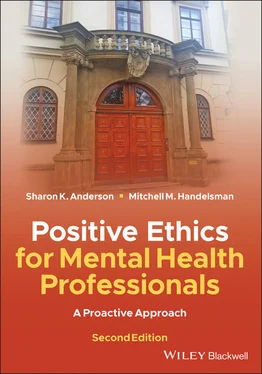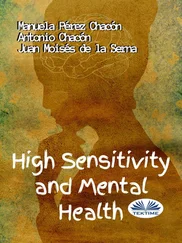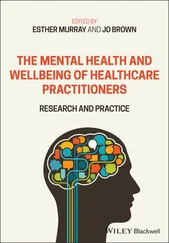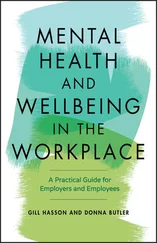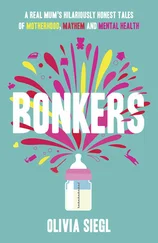57 45
58 46
59 47
60 48
61 49
62 50
63 51
64 52
65 53
66 54
67 55
68 56
69 57
70 58
71 59
72 60
73 61
74 62
75 63
76 64
77 65
78 66
79 67
80 68
81 69
82 70
83 71
84 72
85 73
86 74
87 75
88 76
89 77
90 78
91 79
92 80
93 81
94 82
95 83
96 84
97 85
98 86
99 87
100 88
101 89
102 90
103 91
104 92
105 93
106 94
107 95
108 96
109 97
110 98
111 99
112 100
113 101
114 102
115 103
116 104
117 105
118 106
119 107
120 108
121 109
122 110
123 111
124 112
125 113
126 114
127 115
128 116
129 117
130 118
131 119
132 120
133 121
134 122
135 123
136 124
137 125
138 126
139 127
140 128
141 129
142 130
143 131
144 132
145 133
146 134
147 135
148 136
149 137
150 138
151 139
152 140
153 141
154 142
155 143
156 144
157 145
158 146
159 147
160 148
161 149
162 150
163 151
164 152
165 153
166 154
167 155
168 156
169 157
170 158
171 159
172 160
173 161
174 162
175 163
176 164
177 165
178 166
179 167
180 168
181 169
182 170
183 171
184 172
185 173
186 174
187 175
188 176
189 177
190 178
191 179
192 180
193 181
194 182
195 183
196 184
197 185
198 186
199 187
200 188
201 189
202 190
203 191
204 192
205 193
206 194
207 195
208 196
209 197
210 198
211 199
212 200
213 201
214 202
215 203
216 204
217 205
218 206
219 207
220 208
221 209
222 210
223 211
224 212
225 213
226 214
Sharon K. Anderson, Ph.D.,is Professor of Counseling and Career Development at Colorado State University. In 1993, Sharon earned her Ph.D. in Counseling Psychology from the University of Denver. Sharon became a licensed psychologist in 1995. Her experience as a practitioner includes private practice with adults and older people, supervision of masters-level students and those seeking licensure, and consultation regarding ethical issues in practice. Sharon has taught the master’s-level ethics course for counseling students for over 25 years—teaching/mentoring a multitude of students. She has co-authored or co-edited other ethics books used by psychologists ( Foundations of Ethical Practice, Research and Teaching in Psychology and Counseling ) and life coaches ( Law and Ethics in Coaching: How to Solve and Avoid Difficult Problems in Your Practice ). She has over 50 publications including books, book chapters, and refereed articles, most of them looking at the practice of professional ethics, teaching ethics, and issues of privilege. In her spare time she rides her motorcycle, reads for enjoyment and rejuvenation, and travels to see family.
Mitchell M. Handelsman, Ph.D.,is Professor of Psychology and CU President’s Teaching Scholar at the University of Colorado Denver, where he has been since 1982. Mitch earned his Ph.D. from the University of Kansas in 1981. He is a licensed psychologist and a Fellow of the American Psychological Association (STP). He served for a year (1989–1990) in Washington DC as an APA Congressional Science Fellow. Mitch has won numerous teaching awards, including the 1992 CASE (Council for the Advancement and Support of Education) Colorado Professor of the Year Award, and STP’s Excellence in Teaching Award in 1995. He has co-authored one other ethics book, Ethical Dilemmas in Psychotherapy: Positive Approaches to Decision Making (2015; with Sam Knapp and Michael Gottlieb). He is an associate editor of the APA Handbook of Ethics in Psychology (2012). He has published over 70 refereed articles and book chapters, many on ethics- and teaching-related topics. His blog for PsychologyToday.com (“The Ethical Professor”) focuses on ethical and teaching issues. He is co-author of The Life of Charlie Burrell: Breaking the Color Barrier in Classical Music . In his spare time he plays jazz trumpet.
Welcome to our second edition!
Becoming an ethical psychotherapist or counselor is more than memorizing rules—it is a journey. We wrote this book to help students and practitioners navigate this journey towards a professional identity in a way that integrates their personal ethics and values with the professional ethics and traditions of psychotherapy and counseling.
From the feedback we received, readers found the first edition, engaging positive in its approach, and respectful of their backgrounds. We invite readers to become active explorers, not passive recipients of disembodied rules and laws.
In our second edition, we have kept the format and approach of the first edition. We still present a variety of discussions, case scenarios, thought exercises, and writing assignments. These are meant to (a) introduce readers to all the major ethical issues in psychotherapy, including boundaries, confidentiality, informed consent, supervision, and terminating therapy; (b) help readers explore their core, which includes personal needs, motivations, and values; (c) encourage readers to understand the rational and irrational aspects of ethical thinking and decision making; (d) address with readers issues of social responsibility and cultural awareness; and (e) encourage readers to take a proactive and preventive approach to applying ethics to every facet of their professional behavior.
Within this basic structure, however, we have made some important changes in the second edition. We have expanded our discussion of social responsibility. We have paid more attention to how real professionals make real decisions, including discussions of cognitive and other errors (we call these tripping points ) that psychotherapists confront in their choice-making process. Finally, we have updated the content and literature cited in the book, including new content around ethics and technology.
Like the first edition, this second edition can be used as a primary or ancillary text for ethics courses in all the mental health fields. Instructors can use it as a supplemental text for courses in professional issues, psychotherapy methods, counseling theories and techniques, and survey courses in clinical and counseling psychology, social work, counseling, and marital and family therapy.
Because this book focuses on the basic aspects of professional ethical identity and ethical reasoning skills, it will be useful to readers over time as they re-adjust their professional identities in reaction to inevitable changes in life situations, professional positions, laws/regulations, and ethics codes.
We also wrote this book to help us teach our own courses, and for our fellow instructors who may be new to teaching ethical issues as an entire course or part of a course. Instructors will find that they can organize class discussions and assignments around the exercises and vignettes from the chapters, or they can use the book to supplement their own methods and materials.
We wish to thank many people who have been involved in the long journey we’ve taken since our initial conversations about an ethics book. Our agent, Neil Salkind of Studio B, who was instrumental in helping us conceive of this book in its present form and encouraging us to undertake the project; our first edition editor Christine Cardone; our current editor Darren Lalonde and associate managing editor Monica Rogers; Sam Knapp and Michael Gottlieb for their essential work on the ethical acculturation model; and Allison Bashe for her work on the ethics autobiography. We’d like to recognize the following people have provided valuable assistance and feedback to us regarding previous iterations of the book: Tamar Ares, Bill Briggs, Pam Daniel, Pam Fritzler, Sharon Hamm, Susan Heitler, Mark Kirchhofer, Teresa Kostenbauer, Margie Krest, Amos Martinez, Natalie Meinerz, Amber Reed, and Deb Wescott.
Читать дальше
